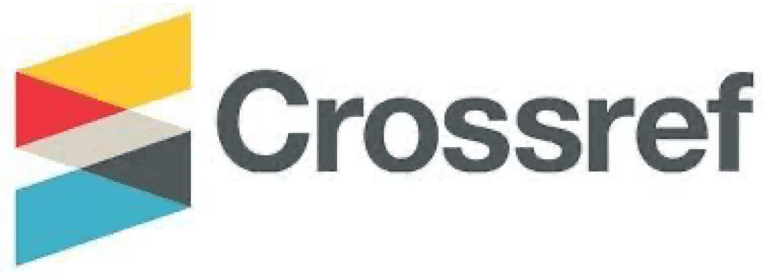STRATEGI PENGEMBANGAN RESTORASI RAWA BUNDER BERBASIS SWOT DI TAMAN NASIONAL WAY KAMBAS
SWOT-Based Bunder Swamp Restoration Development Strategy In Way Kambas National Park
DOI:
https://doi.org/10.24259/perennial.v19i1.22736Keywords:
Rawa Bunder, restorasi, strategi, SWOTAbstract
Restoration is an effort to increase forest function for carrying capacity and maintenance of life support systems. Way Kambas National Park (TNWK) has been doing restoration activities at the Rawa Bunder Resort since 2021. This study aims to determine the strategy for developing the restoration of Rawa Bunder, TNWK. Collecting data through interviews with the parties (community and managers) using a questionnaire; then analyzing using the Strength, Weakness, Opportunity, Threats (SWOT) method. From the analysis results, the average total score on the IFAS matrix is 1.54, and the EFAS matrix is 1.15. These results indicate that the position of internal and external factors in the development strategy of the Rawa Bunder restoration, TNWK is in quadrant one. Thus, the strategy for developing the restoration of Rawa Bunder, TNWK, that must be applied is aggressive, namely by using strength to take advantage of opportunities.
References
Ansori, D. P., Safe’i, R., & Kaskoyo, H. (2020). Penilaian indikator kesehatan hutan rakyat pada beberapa pola tanam (Studi kasus di desa Buana Sakti Kecamatan Batanghari Kabupaten Lampung Timur). Jurnal Perennial. 16(1):1-6.
Citra, F. G. R., Safe’i, R., & Kaskoyo, H. (2021). Status dan perubahan indikator vitalitas hutan konservasi Taman Hutan Raya Wan Abdul Rachman. Jurnal Perennial. 17(1): 12-18.
Gaia. (2016). Kajian Sosial-Ekonomi untuk Tata Kelola Kolaboratif dan Pengembangan Kelembagaan Ekonomi Masyarakat dan Program Restorasi Ekosistem (Laporan). Kabupaten Ogan Komering Ilir, Sumatera Selatan: Hutan Produksi Simpang Heran Beyuku.
Indriani, Y., Safe’i, R., Kaskoyo, H., & Darmawan, A. (2020). Vitalitas sebagai salah satu indikator kesehatan hutan konservasi. Jurnal Perennial. 16(02): 40-46.
Kajanus, M., Leskinen, P., Kurttila, M., & Kangas, J. (2012). Forest policy and economics making use of MCDS methods in SWOT analysis - lessons learnt in strategic natural resources management. Forest Policy and Economics. 20:1-9.
Mardiana. & Hartati, E. 2018. Analisis rencana strategi teknologi informasi perusahaan. Eksplora Informatika. 7(02): 1-8.
Pramono, S., Ahmad, I., & Borman, R.I. (2020). Analisis potensi dan strategi penembaan ekowisata daerah penyanga Taman Nasional Way Kambas. Jurnal Teknologi dan Sistem Informasi. 1(1):57-67.
Priyanto., & Safitri, D. (2016). Pengembangan potensi desa wisata berbasis budaya tinjauan terhadap desa wisata di Jawa Tengah. Jurnal Vokasi Indonesia. 4(1):76-84.
Rauch, P., Wolfsmayr, U., Borz, S.A., Triplat, M., Krajnc, N., Kolck, M., & Handlos, M. (2015). SWOT analysis and strategy development for forest fuel supply chains in South East Europe. Forest Policy and Economics. 61:87-94.
Rangkuti, F. (2014). Analisis SWOT: Teknik membedah kasus bisnis (reorientasi konsep perencanaan strategis untuk menghadapi abad 21). Buku. PT Gramedia Pustaka Utama. Jakarta. 246p.
Rochayati, S. dan A. Dariah. 2012. Pengembangan lahan kering masam: peluang, tantangan, dan strategi, serta teknologi pengengelolaan. Hlm. 187-206 dalam Prospek Pertanian Lahan Kering dalam Mendukung Ketahanan Pangan. Badan Litbang Pertanian. LITBANG-PRESS.
Roslinda, E., Ekyastuti, W., & Kartikawati, S.M. (2017). Social capital of community forest management on Nusapati Village, Mempawah District, West Kalimantan, Indonesia. Biodiversitas Journal of Biological Diversity. 18(2):548-554.
Safe’i, R., Erly, H., Wulandari, C., & Kaskoyo, H. (2018). Analisis keanekaragaman jenis pohon sebagai salah satu indikator kesehatan hutan konservasi. Jurnal Perennial. 14:26-32.
Safe’i, R. Latumahina, F.S., Dewi, B.S., & Adiansyah, F. (2021). Short Communication: Assessing the state and change of forest health of the proposed arboretum in Wan Abdul Rachman Grand Forest Park, Lampung, Indonesia. Jurnal Biodiversitas. 22(4),2072-2077.
Safe’i, R., & Upe, A. (2022). Mapping of tree health categories in community Forests in Lampung Province. IOP Conference Series: Earth and Environmental Science. 995(1):012004.
Sanjaya, F. A., Safe’i, R., Winarno, G. D., & Setiawan, A. (2022). Health assessment of conservation forest based on biodiversity indicator tree types (Case study at Elephant Response Unit Margahayu Way Kambas National Park). IOP Conference Series: Earth and Environmental Science. 950(1):012042.
Sari, R.N., Safe’i, R., & Iswandaru, D. (2019). Biodiversitas fauna sebagai salah satu indikator kesehatan hutan mangrove. Jurnal Perennial. 15(2): 62-66.
Scolozzi, R., Schirpke, U., Morri, E., & D’Amato, D. (2014). Ecosystem service-based SWOT analysis of protected areas for conservation strategies. Journal of Environmental Management. 146:543–551.
Selvira., Safe’i, R., Yuwono, S. B., & Kaskoyo, H. (2022). The damage index value of rubber trees (Hevea brasiliensis) in the rubber community forest Tulang Bawang Regency. Jurnal Perennial. 18(1): 1-5.
Widodo, L. M., Safe’i, R., Winarno, G. D., & Yuwono, S. B. (2022). Plant success rate in program forest and land rehabilitation in Unity Batutegi forest management. IOP Conference Series: Earth and Environmental Science. 1030(1):012005.







